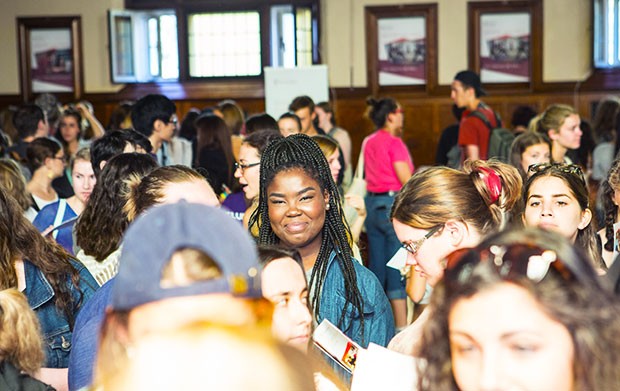Career options for PhD and master's students

Carve your own path, PhD and master’s students.
New research reported in a Globe and Mail article suggests the that the majority of doctoral graduates work outside of academia. Only one third of graduates from Ontario universities get tenure-track positions somewhere in the world.
“In recent years the number of tenure-track positions has decreased, while the number of adjunct, limited-term and postdoctoral positions has markedly increased, pushing PhDs out of the university,” says Bradley Nelson, associate dean of Academic Programs and Development in Concordia’s School of Graduate Studies.
On February 18, Concordia’s Graduate and Professional Skills (GradProSkills) in collaboration with Advancement and Alumni Affairs is hosting a day of Graduate Student Options Career Panels for master’s students and PhD candidates looking to explore different job options.
To provide more clarity on the topic of graduate employment, four of Concordia’s humanities departments are participating in another study called TRaCE, which aims to discover how PhDs found non-academic jobs and to track the career paths of PhD humanities graduates from 24 universities across the country over the past decade.
Concordia is doing its own research for TRaCE, funded by GradProSkills. The national results will be released in the spring.
From academia to the public and private sectors
Until then, graduate students and PhD candidates can attend the all-day event, Graduate Student Options Career Panels.
The program includes a public lecture by Alexandre Lehmann, What does one do with a PhD in 2016?, then three career panels for graduate students: Following the Academic Career Path; Industry and Public Sector Careers for Social Sciences, Humanities and Fine Arts Graduate Students; and Industry and Public Sector Careers for Engineering and Natural Sciences Graduate Students. Each career panel will have four successful Concordia alumni who will speak about their career path following their master’s or PhD degree.
Brad Nelson asserts that graduate students have hard skills that transfer into the private sector.
“Research skills and communication skills themselves are a valuable resource,” he says. “Also, industry has been saying for years they want independent thinking and critical thinking. PhDs and master’s students have that.”
Sherin Al-Safadi agrees. This 32-year-old Concordia alumna, MBA 10, PhD Biology 14, has a rewarding job in pharmaceuticals at Bayer, where she is a medical science liaison.
“My experience getting an MBA and a PhD gave me strategic thinking, presentation experience, soft skills, analytical thinking and the ability to keep the big picture in mind,” says Al-Safadi, who is a guest panelists in the Engineering and Natural Sciences Career Panel.
She notes that the workforce is extremely fast paced, so the first three months is a challenging transition into the private sector, where time management is essential. And there is a lot of cross-functional teamwork between marketing, sales and research. She feels her training and background were instrumental in her success at Bayer.
“I’d advise master’s students and PhD candidates to start networking at least a year before graduation,” she says. “It’s really helpful to leverage alumni and mentors.”
Sign up for the Graduate Student Options Career Panels on Thursday, February 18, 2016 in Room H-763 of the Henry F. Hall Building (1455 De Maisonneuve Blvd. W.) on the Sir George Williams Campus.
For more information, contact GradProSkills@concordia.ca.